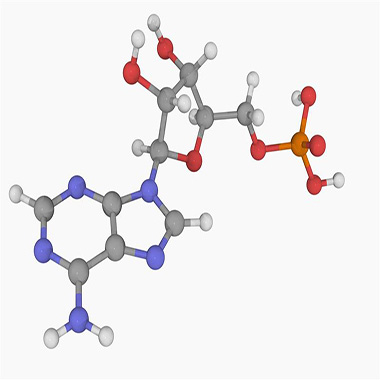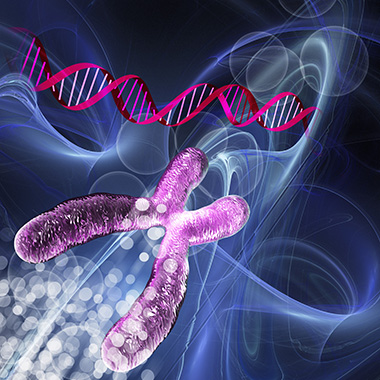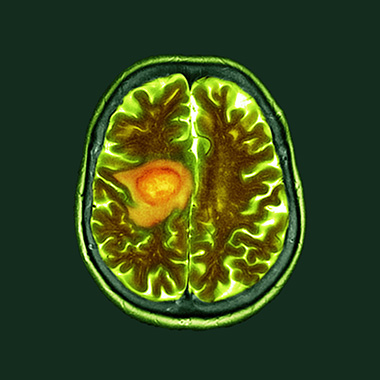Cellular Networks in Cancer
92 members representing 26 departments and centers at UT Southwestern
The Cellular Networks in Cancer Program (CNC) is a scientifically rich, collaborative, and productive research program designed to stimulate cross-disciplinary basic and translational research in dimensions of biology with exceptional importance to the hallmarks of cancer. CNC’s overarching goal is to foster fundamental discoveries in how perturbations in intracellular and intercellular networks contribute to altered tissue physiology and promote cancer initiation and progression.
Research in CNC is concentrated in four vibrant and synergistic subprograms related to the hallmarks of cancer: Signaling and Cell Biology; Epigenetics and Gene Regulation; Immunobiology; and Metabolism. These subprograms are designed to optimize faculty interactions and stimulate the development of collaborative programs that address research needs and cancers prevalent in our catchment area. To have the greatest impact on cancer burden, the CNC strives to create a robust cycle of best-in-class research, complementing our strength in fundamental discovery with infrastructure and expertise in translational research and reverse translation.
Define Tumor Cell-Autonomous and Intercellular Mechanisms of Tumorigenesis
Extrachromosomal DNA provides a mechanism for acquired therapy resistance
Small cell lung cancer (SCLC) is a devastating malignancy characterized by rapid acquisition of therapy resistance and dismal survival rates. Sihan Wu, Ph.D., together with Benjamin Drapkin, M.D., Ph.D.,(Experimental Therapeutics) studied how these tumors become therapy resistant by examining genomic features in over 50 patent-derived SCLC xenografts. They found that amplifications of MYC-family oncogenes appeared commonly in the resistant subset, but surprisingly these amplifications largely occur in extrachromosomal DNA (ecDNA) rather than on the chromosomes. The paper reports a novel role for ecDNAs in the evolution of drug resistance in an intractable form of cancer.
Identify the Processes that Contribute to Tumor Evolution and Metastasis
Extrachromosomal DNA provides a mechanism for acquired therapy resistance
Small cell lung cancer (SCLC) is a devastating malignancy characterized by rapid acquisition of therapy resistance and dismal survival rates. Sihan Wu, Ph.D., together with Benjamin Drapkin, M.D., Ph.D.,(Experimental Therapeutics) studied how these tumors become therapy resistant by examining genomic features in over 50 patent-derived SCLC xenografts. They found that amplifications of MYC-family oncogenes appeared commonly in the resistant subset, but surprisingly these amplifications largely occur in extrachromosomal DNA (ecDNA) rather than on the chromosomes. The paper reports a novel role for ecDNAs in the evolution of drug resistance in an intractable form of cancer.
Foster Crosstalk Between Basic and Clinical Investigators to Define and Address Pressing Questions in Cancer Biology
Pyrimidine synthesis is a liability in IDH-mutant gliomas
Therapies in tumors with mutations in isocitrate dehydrogenase-1 and -2 (mtIDH1/2) have so far focused on inhibiting the neomorphic activity of the mutant enzyme, but mtIDH1/2 also imposes other metabolic liabilities. Using a screen of metabolic inhibitors, Samuel McBrayer, Ph.D., and colleagues identified the pyrimidine synthesis pathway as a targetable vulnerability in this subset of gliomas. They report that a brain-penetrant pyrimidine synthesis inhibitor reduces tumor growth in novel mouse models of mtIDH1/2-driven glioma. The work has stimulated efforts to target this pathway in clinical trials.
Notable Publications
Garcia-Bermudez, J. et al. Glycosaminoglycan-driven lipoprotein uptake protects tumours from ferroptosis. Nature 2025; 0.1038/s41586-025-09162-0. PMID: 40500442.
Ly, P. et al. Mitotic clustering of pulverized chromosomes from micronuclei. Nature 2023; 618(7967):1041-1048. PMCID: PMC10307639.
Nam, Y. et al. Structures and mechanisms of tRNA methylation by METTL1-WDR4. Nature 2023; 613(7943):383-390. PMCID: PMC9930641.
Zhang, X. et al. Activation of STING by targeting a pocket in the transmembrane domain. Nature 2022; 604(7906):557-562. PMCID: PMC9098198.
Conacci-Sorrell, M. et al. Tryptophan fuels MYC-dependent liver tumorigenesis through indole 3-pyruvate synthesis. Nat Commun 2024; 20;15(1):4266. PMCID: PMC11106337.
Leadership and Contact


Ralph DeBerardinis, M.D., Ph.D.
Professor and Director, Eugene McDermott Center for Human Growth and Development




